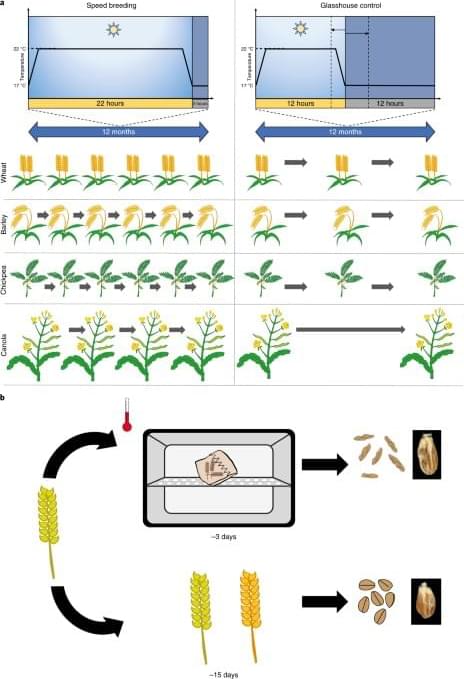Coffee, wine, and wheat varieties are among the foods we could lose forever.
The grocery store is thin on genetic diversity. Bringing back endangered foods can help.


The award brings NASA a step closer to the first robotic round trip to bring samples safely to Earth through the Mars Sample Return Program.
NASA has awarded a contract to Lockheed Martin Space of Littleton, Colorado, to build the Mars Ascent Vehicle (MAV), a small, lightweight rocket to launch rock, sediment, and atmospheric samples from the surface of the Red Planet. The award brings NASA a step closer to the first robotic round trip to bring samples safely to Earth through the Mars Sample Return Program.
“This groundbreaking endeavor is destined to inspire the world when the first robotic round-trip mission retrieves a sample from another planet – a significant step that will ultimately help send the first astronauts to Mars,” NASA Administrator Bill Nelson said. “America’s investment in our Mars Sample Return program will fulfill a top priority planetary science goal and demonstrate our commitment to global partnerships, ensuring NASA remains a leader in exploration and discovery.”


And it doubles up as a backup energy unit and a camper.
Norwegian tech startup Fresco Motors just revealed its new Fresco XL, an electric vehicle (EV) that it claims will have a range of 620 miles (1,000 km). If the claim is true, it would make it the longest-range EV in the world.
Currently, the 2021 Lucid Air is the longest-range EV on the market with its EPA rating of 520 miles (837 km). Mercedes-Benz has announced its partially solar-powered Vision EQXX with a range of 620 miles (1000 km), though that is only in the concept stage.
Fresco Motors was founded in 2019 and was named after the futurist engineer Jacque Fresco. In its new statement, the company announced that the Fresco XL will feature an electric motor on each axle, meaning the all-wheel-drive EV will be off-road capable. The company also said the vehicle will come with a double-stacked extra-large battery pack that solves the range anxiety problem\.
Norwegian tech startup Fresco Motors just revealed its new Fresco XL, an electric vehicle that it claims will have a range of 620 miles.




